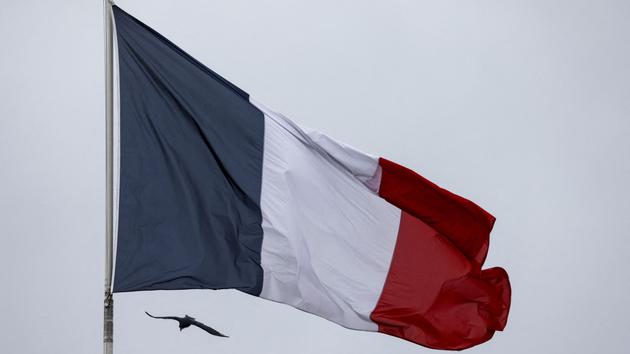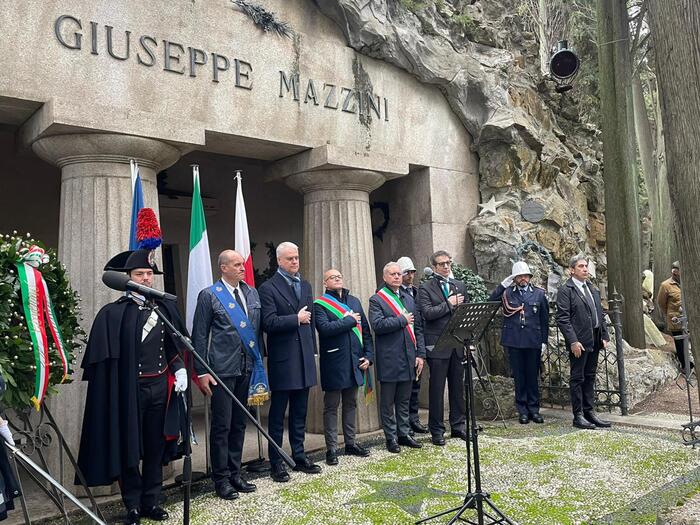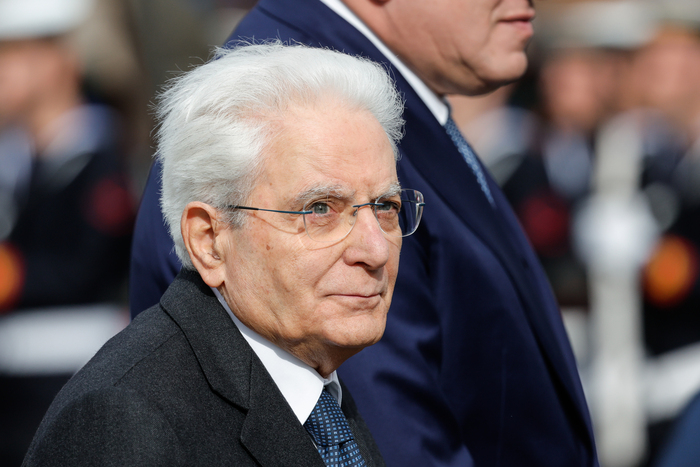Alexis Ouaki-Manseur is a communications consultant.
By announcing in March 2007, on the advice of Patrick Buisson, the creation of a Ministry of Immigration and National Identity, candidate Sarkozy dared a major transgression.
He risked evoking a theme banned from public debate for several years, that of national identity.
Taking up the subject, Emmanuel Macron will admit: "
Nicolas Sarkozy's intuition (…) was good even if it seems to me that the formula
of national identity
was subject to too many controversies
".
And for good reason, this notion divides.
It divides first of all because everyone has their own conception of the French nation and therefore their own opinion on the substance of our identity.
A French conception of the nation is often mentioned, with reference to the famous conference of Ernest Renan, who defined it as the combined result of a historicity and a common will: “
A nation is a soul, a spiritual principle.
Two things which, to tell the truth, are but one, constitute this soul, this spiritual principle.
One is in the past, the other in the present.
One is the possession in common of a rich legacy of memories;
the other is current consent, the desire to live together, the will to continue to promote the heritage that we have received undivided
”.
Historical conception because for Renan, it means having done great things in the past "
the nation, like the individual, is the culmination of a long past of efforts, sacrifices and dedication.
", And proactive because it means wanting to continue to do so in the future"
a nation is (...) a great solidarity, formed by the feeling of the sacrifices that we have made and those that we are willing to make again
" .
The nation is therefore founded on the memory of the great accomplishments of the past and the will to prolong and renew them again.
We are living in the era of the weakening of collective identity in favor of the advent of what Pierre Nora calls “group identities”.
If this definition of the nation is so often retained, it is because it reconciles two opposing conceptions: an organic conception, on the one hand, prior to the Revolution and, therefore, more marked on the right, and, d on the other hand, a political conception, resulting from the Revolution and, since, more marked on the left.
In other words, to use the distinction of Pascal Ory, it brings the "
people ethnos
" of the "
people demos
" in the sense that "
where the demos is a project, the ethnos is a fact
."
Emmanuel Macron took up this synthesis on his own, affirming that "to
be French is first of all to inhabit a language and a history, that is to say to be part of a collective destiny
".
It then divides because this expression now appears to be nauseating in the eyes of some, who project the abominations it does not contain.
They consider that wanting to define what makes our singularity as a people is necessarily synonymous with rejection, exclusion of others or exacerbation of tensions.
To read also:
"The weakening of the national identity, ground for a new French regionalism"
But to reject the idea of national identity on this basis is to reject another idea.
Basically, this is a philosophical mistake because every entity has an identity, which makes it possible to distinguish it from others and to make it stand out: this is also the case with France, whether we like it or not, whether we accept it or not.
Finally, and above all, it divides because we are living in an era of the weakening of collective identity in favor of the advent of what Pierre Nora calls “
group identities
”.
These, which were once reduced to family, personal or private spheres, now politically structure the individuals who carry them in public debate.
The question of national identity is therefore, ultimately, that of the link, of the feeling of belonging.
The latter abandon the common in favor of particular interests which are, in their very principle, incompatible with the French conception of the nation.
It is easy to see that those with a “
communitarian
”
conception
of political and social organization are opposed to the national tradition for which there is only a direct link between the State and the citizen.
The question of national identity is therefore, ultimately, that of the link, of the feeling of belonging.
It is this feeling which allows the concretion of the political and the cultural giving substance to the Nation.
This link, so essential and too often neglected or even rejected, is more than legal or conceptual, it must be lived.
To be French is not only to have its nationality.
If this is the legal definition accepted by the administration, which responds to a principle of equality, all persons holding French nationality being so in the same way, this is not sufficient to define our identity.
At most, it is a prerequisite.
To read also:
France, or the Republic?
Why you shouldn't choose
The French are a people, carried by a history, a language, a heritage, traditions, a habit and common customs.
Being French is not therefore limited to having an official document.
Such an assertion would amount to considering that the only thing distinguishing a French from a foreigner would be his identity document.
The French would no longer be more than disembodied beings, interchangeable by simple administrative modification.
If such a situation were to develop, France would then be reduced to an administrative organization.
It should come as no surprise then that the French themselves cease to feel French, to believe in France and in what unites them.
“The French people are a compound, it's better than a race, it's a nation.
"
Jacques Bainville
Nor can the quality of French be characterized solely by the French language.
Admittedly, it is the language of the State since the ordinance of Villers-Cotterêts and has been an instrument of cultural unification of France, mobilized as well by the monarchy as by the Republic, but the French share it with other peoples.
If all French people are French speakers, all French speakers are not French.
In the same logic, being French cannot result only from being born on French territory.
As Ferdinand Buisson said, "
a Frenchman is not only a man born in France, he is a man born in France, who has the mind formed from his mind, who has learned from her to watch. always higher, always wanting more light, always more reason, always more fraternity
”.
If the quality of French is not limited to the possession of an official document, the handling of a language, or a place of birth, it does not lie either in the assignment to an ethnic or racial affiliation, because that it is not a nature.
With Jacques Bainville, it is necessary to affirm and reaffirm tirelessly that "
the French people are a compound, it is better than a race, it is a nation
".
These reminders, which would seem obvious to a reader of the twentieth century, are fundamental today.
While the republican conception of the nation had succeeded in the difficult reconciliation of opposing visions, this unity, so difficult to acquire around a common base, is today contested no longer on its terms, but on its very existence.
Therefore, yesterday's enemies must, more than ever, come together to protect this heritage that makes us unique.













/cloudfront-eu-central-1.images.arcpublishing.com/prisa/KMEYMJKESBAZBE4MRBAM4TGHIQ.jpg)

